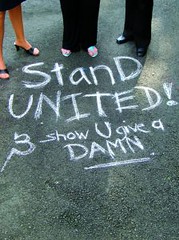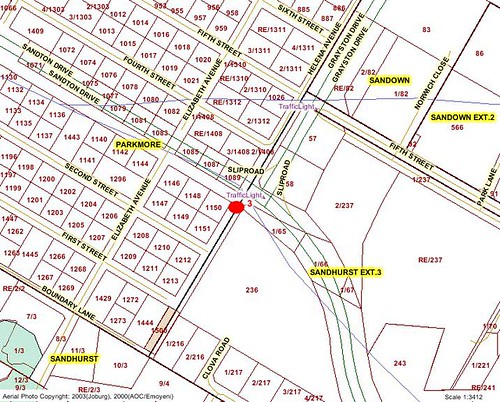 There is a saying that the price of freedom is eternal vigilism. That wise old guy Plato also once said that the price of apathy towards public affairs is to be ruled by evil men.
There is a saying that the price of freedom is eternal vigilism. That wise old guy Plato also once said that the price of apathy towards public affairs is to be ruled by evil men.When we suffer from crime, poor service, corporate exploitation or poor governance, many of the roots can be found in our very own apathy. When our actions are negatively impacted, we very well might be ruled by evil men - and I'm not necessarily talking about someone in government here.
How often do we not say that we just don't have the time to do anything? Or to claim that there is no point in trying because those in authority will not do anything? Or to claim that it is not our job to get involved - that's why we pay taxes?
From my early involvement in analysing crime, it is apparent that previous years' success against crime in South Africa drew on community involvement. As crime in Gauteng was reduced in the late nineties, apathy grew and community involvement dropped.
But the effects of apathy are not confined to increasing crime. They can be felt in the service we receive from public institutions or at retailers. They can result in lack of representation in government.
Activists are not born, they are made. Be it through an upbringing that encourages standing up for one's beliefs or through circumstance that convinces them to say, "Enough is enough."
I believe we need positive activists. People who are not dragged into confrontation and negative criticism, but constructive engagement. People who want to be part of the solution and not the problem. People who understand that there is a personal cost to enjoying progress.
The positive activist's manifesto is:
- I understand that positive engagement yields quicker, better results than negative attack
- I understand that should I wish to enjoy the benefits living in a community then I must contribute to that community
- I understand that my contribution includes taxes and moentary contributions but is likely to require personal involvement
- I will seek to be involved in solution before criticising
- I will act rather than pass by
- I will give positive feedback - where this is not possible I will ensure my feedback is constructive
- I will escalate rather than give up.
The positive activist's goals are:
- To promote action rather than argument
- To promote accountability and results
- To promote community involvement
- To make a difference.
If you agree and want to be involved, then feel free to post the following code on your blog / site that links to this article:
<a href="http://itisthequestion.blogspot.com/2006/08/what-is-positive-activism.html"><img src="http://static.flickr.com/83/230343279_96b8171088.jpg?v=0"/></a>
This will put the following logo and link onto your page:





